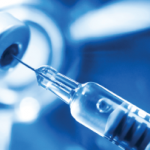Evidence is accumulating that the microbiome may be an important part of the pathogenesis of many autoimmune diseases. Two recently published articles report on how translocation of the gut bacterium Enterococcus gallinarum drives autoimmunity in mice and humans, and on the role of other commensal bacteria in triggering immune responses—specifically to the autoantigen Ro60, which…








